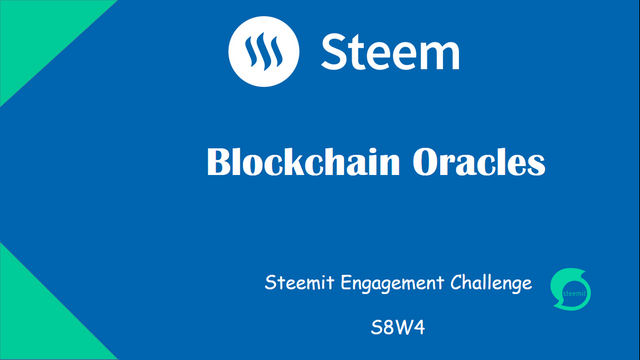
Blockchain Oracles: Connecting Real-World Data to the Blockchain
Blockchain technology has garnered significant attention in recent years for its ability to create decentralized and transparent systems. However, one major challenge with blockchain is its inability to access data from outside the network. This limitation is where blockchain Oracles come in. In this article, I will discuss what blockchain Oracles are, the types of Oracles, and their potential applications.
What are Blockchain Oracles?
In simple terms, blockchain Oracles are a bridge that connects blockchain networks to off-chain data sources, including web APIs, sensors, and other external data feeds. Oracles are necessary because blockchain networks are unable to access data from the outside world on their own. Oracles allow blockchain networks to operate more intelligently and offer a wider range of applications by enabling them to access and incorporate real-world data and events.
Oracles come in different forms and functions, and their effectiveness largely depends on the type of data they provide and the accuracy of that data. Additionally, the reliability of Oracles is crucial because any incorrect information fed into a smart contract can result in unintended consequences.
Types of Oracles
There are three main types of Oracles: software, hardware, and human.
Software Oracles: These are automated programs that fetch data from various sources such as APIs or web scrapers. Software Oracles are the most commonly used type of Oracle and are popular because they can retrieve data quickly and accurately.
Hardware Oracles: These Oracles use physical sensors or devices to collect data, such as temperature or pressure readings. Hardware Oracles are useful for industries where accurate data collection is critical.
Human Oracles: This type of Oracle involves humans who manually enter data into the blockchain network. While human Oracles can be the most accurate, they are also the most prone to errors.
Decentralized Oracles
Decentralized Oracles are an exciting development in the blockchain space because they provide greater security and reliability by removing the need for centralized control. Instead, they rely on a network of independent nodes to provide and verify data, making them more resistant to attacks and failures.
Decentralized Oracles are particularly useful for industries such as finance, supply chain, and insurance. In these industries, the accuracy of data is critical, and any discrepancy could lead to significant financial loss or even legal repercussions.
Use Case of a Decentralized Oracle
One potential use case of a decentralized Oracle is in the insurance industry. For example, let's say a farmer takes out a crop insurance policy that pays out if their crop is damaged by extreme weather conditions. A decentralized Oracle could be used to verify whether the weather conditions met the policy's criteria for a payout. This would eliminate the need for a centralized authority to determine whether the claim is valid, making the process faster, more transparent, and less prone to fraud.
Another use case of a decentralized Oracle is in the supply chain industry. Blockchain technology has already shown great potential in tracking and tracing goods as they move through the supply chain. However, this data is limited to what is recorded on the blockchain network. With a decentralized Oracle, supply chain companies can collect and verify data from external sources, such as shipping manifests and IoT sensors, to create a more accurate picture of the entire supply chain. This would increase transparency and reduce the risk of fraud.
In conclusion, blockchain Oracles play a crucial role in bridging the gap between blockchain networks and real-world data. They enable the creation of more intelligent and transparent systems and offer a wide range of potential applications across various industries. Oracles come in different forms and functions, and their effectiveness largely depends on the type of data they provide and the accuracy of that data. Decentralized Oracles are particularly exciting because they offer greater security and reliability by removing the need for centralized control.
As the blockchain industry continues to evolve, we can expect to see more advancements in Oracles technology, leading to increased adoption and integration of blockchain networks in real-world applications. The potential benefits of blockchain technology, coupled with the versatility of Oracles, make this an exciting area to watch in the years to come.
Hi @cryptomasala.
Unfortunately, your post is totally generated from the AI content generator. It is highly prohibited on the platform because this is against the Proof of Brain mechanism. The results that I have obtained by detecting your post are shown below.
Moreover, you are not a verified Steemian. I must recommend you to verify yourself from the Newcomers community first and then start working in other communities after learning the basics of the platform.
Cc: @steemcurator01, @steemcurator02
Downvoting a post can decrease pending rewards and make it less visible. Common reasons:
Submit